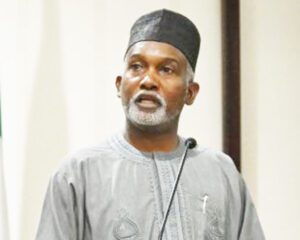
COVID-19: Association distributes face masks to motorists, passengers in Gombe
To create more awareness and ensure compliance with COVID-19 protocols, the Road Safety Officers Wives Association (ROSOWA) on Monday distributed face masks to motorists and passengers in Gombe State.
Mrs Hannatu Ibrahim, ROSOWA chairperson, Gombe State chapter, led members of the association to major motor parks in the state where the face masks were distributed.
She said the gesture was necessitated by the resurgence of the virus in the country, and the need to ensure that passengers and motorists take responsibility in COVID-19 fight.
She stated that the idea of visiting major parks was due to the large number of travellers during festive periods.
“Today we distributed face masks, flyers and applied sanitisers on passengers and motorists’ hands. We told them about the pandemic and the need to adhere to laid down protocols.
“Our message is simple, use face masks, sanitise regularly, avoid touching nose and eyes, observe physical distancing and other protocols by the Nigeria Centre for Disease Control (NCDC),” she said.
Mr Abubakar Sadiq, Executive Director, Operations, Gombeline, thanked the association and other road safety personnel for the sensitisation, adding that it was timely.
Sadiq said the management of Gombeline had taken measures to ensure that motorists and passengers adhered strictly to NCDC protocols, stressing that without face masks; passengers would be denied access to the parks to board any vehicle.
He added that the next stage, which would be implemented in two weeks, was to adhere to NCDC guideline by taking 10 passengers per vehicle against the 14 to 15 passengers.
One of the motorists, Adamu Mohammed of Adamawa Sunshine Motors, said that he and his passengers were given face masks and had their hands sanitised.
Mohammed, while appreciating ROSOWA and other personnel for the gesture, advised motorists to take COVID-19 seriously.
“We need face masks and sanitisers; so if it means you will buy, please do. Using N100 or N200 to buy them is better than losing your lives to COVID-19,” he said.
A Yola-bound passenger, Amira Muhammadu, said that she received the face mask without paying for it, advising other passengers to beware of the virus while on their journeys.



